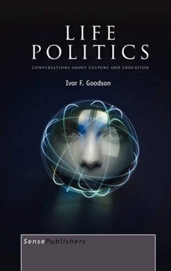Life Politics: conversations about education and culture
Mediation is the Message
QUESTION: Perhaps we can think that each cycle leads to some expected results and some unexpected results. And the unexpected results open the new cycle, let’s say, the mediation cycle.
IVOR: Yes, absolutely right.
QUESTION: And what do you think is the role of curriculum theory and the situation of curriculum theory within this period?
IVOR: Again, this is my empirical reading and it goes against my desires. My desires are that curriculum theory will remain vivid and vital and vigorous. My reading of it, is that it has becomes marginalized and meaningless. And one of the reasons for that, I think, is that it was a space. The argument of the curriculum as a space where arguments about inclusion or social exclusion could take place, arguments about pedagogy could take place. Where, in a situation of democratic schooling, really important debates could place. If you move from that period of democratic schooling into the period narrowing, vigorously partitioned separated, segmented marketplaces of schooling, where there are some schools for the rich and some for the poor and some for the middle class, the argument of the curriculum is a much less central distributional argument than it was in the 60’s and 70’s. Curriculum theory has been repositioned as a set of marginal arguments about inclusion and exclusion. So the big arguments are arguments about the nature of schooling and the distribution of schooling, not about the nature and distribution of curriculum. I spent 20, 25 years writing in curriculum theory. But most of my last 10 years has been making that move from a specific interest in curriculum into a wider understanding of the new patterns of schooling emerge. So, with regret, I would say the curriculum theory is likely to be less interesting. With the new reforms you’ve got a lot of writing about implementation. I talked about implementationism, my opinion, which is implementation is short-sightedness among a lot of English theorists. And that’s just implementing what has been decided as structural readjustment. That’s not what curriculum theory should be about, but it’s what it’s become. It is no longer a field that deploys major arguments about a nation’s schooling as it once was. So I am disappointed and distressed about the state curriculum theory, but one moves on. It was a central milieu; it is now a marginal milieu.
